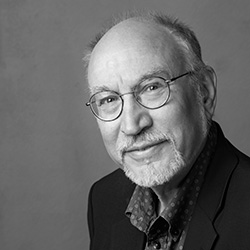Richard Pizer received his B.A. degree in chemistry from Johns Hopkins University (1965) and his Ph.D. degree in Inorganic Chemistry from Brandeis University (1969). Over the course of his career, he has served on the faculties of SUNY Potsdam, New York University, Brooklyn College, and the Graduate Center of the City University of New York (CUNY). He has also held research appointments at SUNY Buffalo, New Mexico State University, and the Research School of Chemistry of the Australian National University. His teaching has involved courses ranging from non-major undergraduate electives to second-level doctoral courses in chemistry. He has served as mentor to doctoral students, master’s students, and undergraduates. His research has involved both experimental and computational studies of reaction kinetics and thermodynamics with an emphasis on coordination chemistry.
He has also served in a number of administrative roles including executive officer of the Ph.D. Program in chemistry at CUNY, dean of graduate studies and Research (Brooklyn College), and provost and vice president for academic affairs (Hunter College and New York Institute of Technology). He joined New York Tech as provost and vice president for academic affairs in 2006 and joined the faculty of the Department of Biological and Chemical Sciences at New York Tech as a full-time member in 2011. As a member of the faculty, he has returned to research and has expanded his previous interest in coordination chemistry to include studies of carbohydrate recognition by ternary boron acid complex ions.
Recent Projects/Research
- Recognition of sugars by boron acid/α-hydroxy carboxylic acid complex ions.
Selected Publications
- “Boronic Acid/Polyol Complexation Reactions: Equilibria, Reaction Mechanisms, Saccharide Recognition” Manuscript in preparation.
Honors and Awards
- Sigma Xi
- Professor Emeritus – Graduate Center of the City University of New York
Courses Taught at New York Tech
- Chemistry 107 – Engineering Chemistry
- Chemistry 110 – General Chemistry I
- Chemistry 150 – General Chemistry II
- Biology 107 – Environmental Science
- Foundations of Scientific Process
- Foundations of Inquiry
